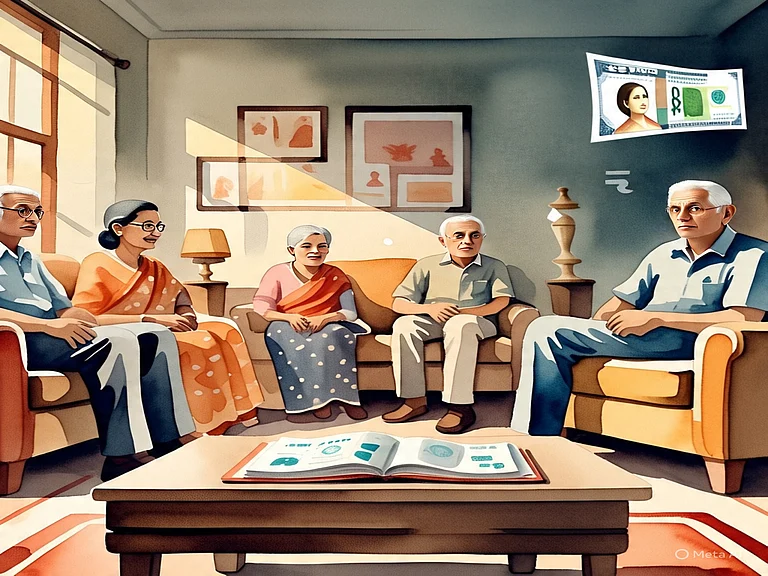In a case regarding the re-employment of doctors at AIIMS, Jodhpur, and their salary payments, the Rajasthan High Court ordered the hospital not to deduct pension from the payment to the doctors from a retrospective effect. The hospital had appointed retired doctors under the ‘re-employment’ category but did not mention it either in the job advertisement or the appointment orders. Since their appointment in 2018, the hospital has been paying them full salaries without deducting their pension amounts. The higher payment came to the hospital's attention only after the Ministry of Health and Family Welfare (MoHFW) sent it reminders to apply the ‘pay minus pension’ formula for these employees. It was then that the hospital issued a circular to get the pension details of concerned employees.
The divisions bench of the Rajasthan High Court, comprising Justice Pushpendra Singh Bhati and Justice Chandra Prakash Shrimali, attributed the ignorant attitude of AIIMS, Jodhpur, to the dispute between the doctors and the hospital.
In this matter, the Central Administrative Tribunal (CAT) previously ruled that such employees will fall under the re-employed category, and thus, their salary payments should be made after deducting the pension amount, effective retrospectively.
What Is The 'Pay Minus Pension' Dispute?
The concerned doctors filed a petition against the Tribunal order. These doctors were appointed in 2018 and were subjected to the ‘pay minus pension’ rules in 2023 after receiving instructions from the MoHFW.
The petitioner doctors argued that the advertisement or appointment order did not mention the pay minus pension rules, and therefore, after five years of appointment, imposing this rule is illegal.
On the other hand, the AIIMS, Joodhoour counsel argued, “Tribunal passed the impugned orders considering the appointment of the Doctors to be falling within the ambit of the term “Re-employment” as per Regulation 33 of the Regulations of 1999.” The counsel also drew the Court’s attention to the Orders of 1986, which tells about the ‘Pay minus Pension’ clause for central government employees, including railways, defence, postal department, etc.
Payment On Re-Employment
The Court noted, “It also has to be noted that over time, several rules and regulations have also been framed regarding pay fixation of re-employed retired government servants under the Indian legal framework. The intent behind such rules and regulations is to address the situation wherein retired government servants who are already receiving a pension in lieu of retirement, when re-employed, are granted a pay which includes the certain heads already paid to them under the pension; the same would result into their unjust enrichment at the expense of the public exchequer. Thus, the rules of pay fixation of the government employees who were re-employed within the service of government were introduced.”
'Pay Minus Pension' Rule
The court referred to the Central Civil Services (Fixation of Pay of Re-employed Pensioners) Orders, 1986, the Office Memorandum (OM) dated May 1, 2017, that mentions the pay minus pension rule, All India Institute of Medical Sciences Act, 1956, and All India Institute of Medical Sciences Regulations, 1999, to reach to a conclusion.
The court held, “The appointment was done by issuing office orders, where the pay matrix and rules applicable qua their service were mentioned along with other details. The services of the doctors are subject to the Act of 1956, and Regulations of 1999, and the service conditions of the doctors appointed are governed by the Central Civil Service Rules as applicable to the Central Government employees.”
It said, “This Court further observes that the provision of Regulation 33 of the Regulations of 1999, indicates that if a retired person is employed in the AIIMS, he/she is to be treated as a reemployed person.”
The Judgement
The court agreed with the tribunal’s decision to treat the appointed doctors as ‘re-employed’ persons and held, “Since the conditions which were neither there in the advertisement nor in the appointment order would not apply in the case of the doctors herein, is not correct, because the Rules which apply to the service, including consolidated and conjoint reading of the Act of 1956, the Regulations of 1999 and Orders of 1986 clearly demarcates that once the employees are re-employed, the ‘Pay minus Pension’ formula should be applicable to them.”
However, the court noticed that the hospital's attitude has been ‘lackadaisical’ and thus it is unfair to recover the extra payment from the doctors with a retrospective effect.
The court directed that the doctors so appointed are subject to pay minus pension and directed the hospital to apply the rule with a prospective effect from the date of the order.


















